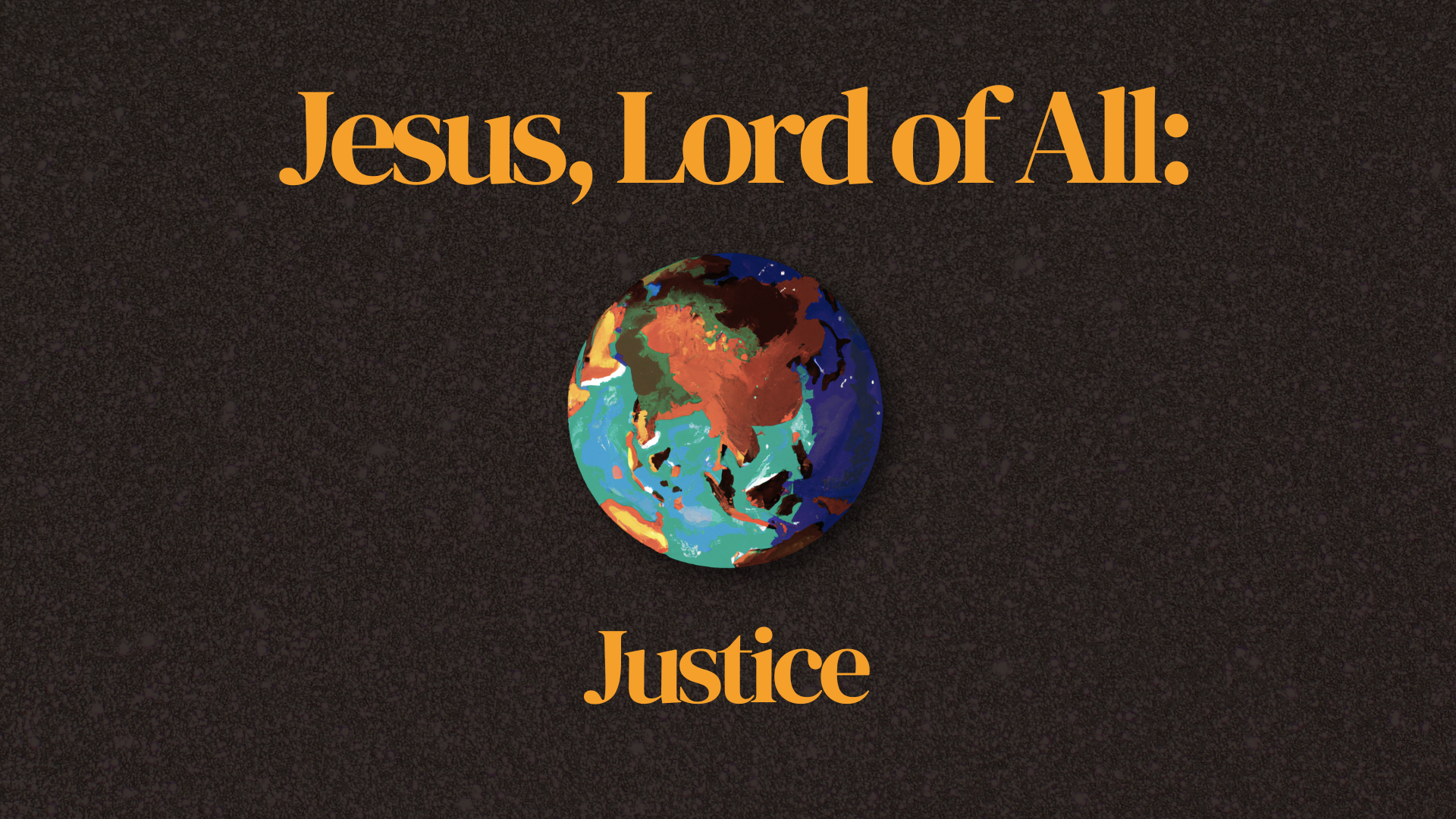Social media is a relatively young reality. Coming into the mainstream in the early 2000’s, social media in its many forms is now a staple of modern life. As platforms like Instagram, X, and TikTok explode in popularity all Christians must ask this question: how should I think about ,and engage with social media? Many have not yet realized just how impactful this question is and will be for the generations to come.
The Church contains a spectrum of views in its midst concerning the internet and social media. Social platforms have been called evil, neutral, good, and even the future of the Church gathering. Plenty of work is being done discussing the effects of social media on our daily lives. This is good, and there is much to glean from these studies. However, the aim of this article is to do something different.
Jesus is Lord over all things (Col. 1:17, Eph. 1:22). His ministry is to reconcile all things to Himself, that is to bring everything under His lordship (Col. 1:19-20). Therefore, there is no aspect of life which can escape the transformative power of Christianity. Instagram, whether we like it or not, is a part of our world. It is not leaving anytime soon. In fact, it will likely only grow more embedded into our society, not less. So, as Christians committed to orthodoxy in a modern world, we are tasked with thinking through how exactly we might find social media submitted to the Lord.
Put simply, it is our inherent responsibility to learn how to live each distinct part of our lives before the face of God. In our modern world, this life probably involves social media. So, we must set ourselves the task of engaging with social media, trembling before our Sovereign God, saying “Lord, show me how this ought to look in your Kingdom!”
The goal of this article is twofold: to humbly set forth a vision for social media under the lordship of Jesus Christ; and second to extrapolate the implications of this vision for everyday life.
Instagram, Under the Lordship of Jesus
There are three basic approaches that Christians have taken towards culture throughout history. The first argues that culture is completely sinful, and that the Church must withdraw from the world to be pure. The second is admitting that culture is neutral, neither good nor bad, simply tolerable. The third argues that culture is part of God’s design and part of the Christian life.
I firmly believe the Bible teaches the third view, and that all of culture is to be redeemed under Jesus Christ. This gives Christians the impetus to try and move towards social media in a positive, reconciliatory manner. But how does one actually do that? It is one thing to agree that culture, and social media, ought to be integrated within a Christian worldview and quite another to develop a framework for how that is to happen.
The design of social platforms like Instagram, Youtube, and TikTok is to retain attention at all costs. The algorithm aims to find what an individual enjoys and feed them more of that content. As a result, the average user does not think deeply about what they are receiving, they simply know they enjoy it. Thus, social media becomes many things to many people. It is a point of connection, a source of entertainment, a news outlet, a professional tool, and more. All of these functions exist on the surface of a person’s consciousness. Subliminally, social media takes on a different role.
Under the guise of dopamine, social platforms have become chambers in which our society has learned to form their own identities. Through the content we consume, groups we agree with, profiles of other people we respect, and ways in which we self-soothe, we subliminally learn to fashion a sense of self. Social media is a hyper-responsive way for us to do so. By design, it is a funnel in which we can project a version of ourselves, receive constant feedback, and adapt to identify with certain groups that we want to be part of. Beneath the surface of entertainment, news, and inspiration is a strong undercurrent of self-assessment and identity crafting. The world subconsciously sees social media as an extension of themselves.
The Church must think carefully about how it proceeds. If we embrace this approach with no modification, we will look just like the rest of the world and find ourselves subject to a problematic system of identity formation. On the other hand, if we write the digital world off entirely, we will be left out of the cultural discussion. This choice is tantamount to withdrawing from the world. Our view of social platforms must shift, and Christians must find a way to be present online to the glory of God.
I believe that a promising framework for the Christian integration of social media is the view of social platforms as the modern town square.
Social platforms are not places where ideas are exchanged, like a university (although this does happen in more subliminal ways). They are, instead, to be likened to a town square where people pass one another, wear their clothes, pursue their aims, exchange pleasantries, and form social groups. So, the Church ought to view social platforms as a way that our selves find representation in the public common space, but are not true extensions of our actual selves in any regard.
This descriptive vision gives Christians a robust framework for cultural engagement. First, this classification indicates that social media is not automatically placed into the category of “vice” but can be seen in the promising sphere of “culture.” By acknowledging the role social media now plays in our world we become part of the town. We are up to date. We are average and relatable.
Second, this vision gives us cultural engagement in a manner that is countercultural, critical and even counter to the design of social media platforms themselves. By consciously slotting social media into the cultural role that town squares have traditionally filled, we limit its influence on our lives and modify the way in which we interface with the platforms themselves. This will be further explained in the following section.
We have entered the age of Techno-Theological Polemics. People will be won to the faith and influenced by a Christian worldview as it is winsomely presented in the natural language, and natural locations of culture in the 21st century. The preacher on the digital street corner will be used by God to draw a changing world to Himself.
Extrapolating Implications
Now, if we adopt this vision of social media as the modern town square, what does this framework change about our everyday interaction with various platforms? What guiding principles come forth? Which of our old habits must die, and what new disciplines must take their place? Allow me to extrapolate a number of implications.
One, if social media is seen as the town square, then Christians will come to the digital world as thoughtfully and carefully as we do the physical. Recognizing that social platforms are no longer insignificant, unserious mediums, but are instead the place the world is turning to, we must begin to treat our individual corner of the new town square with careful consideration.
If an Instagram account is my presence in the public commonplace, then what I say matters. The words that I use, the way I phrase something, the holes in my thoughtless logic, they all take on a new magnitude of importance just as they would in the real world. Social media is no longer a throw-away repository, where we live “second lives” with no consequences. A Christian’s social media account is a legitimate representation of themselves, and thus of Christ.
Two, in keeping with this principle, the age of second-rate Christian content posted to social platforms must pass. Churches, Para-Church organizations, evangelistic institutions, and Christian creators of all kinds must begin to think deeply about social media and produce first rate, orthodox content for their channels. Ten years ago, posting Christian work online was seen as useful, but not nearly as important as publishing through other traditional mediums. But, if the goal of Christian creation is to influence people for the Gospel then focus must be shifted to the new town square.
Gavin Ortlund’s latest ministry endeavor is a prime example of this cultural shift. Ortlund has been a widely respected thought leader within the Evangelical movement for some time. He has published a number of excellent books and is a part of multiple reputable organizations. His latest endeavor is a program called Truth Unites, creating material defending the Protestant faith through the Gospel and theological depth. The content created under this banner is deep, professionally researched, and culturally relevant. The catch? It’s all on YouTube. Recently, on a podcast with the Center for Pastor Theologians, Ortlund remarked how surprised he was to find that those engaging with his material were thinking extremely seriously, and deeply, about each topic he addressed. For his viewers, mostly young men from a variety of backgrounds, this thoughtful, orthodox and modern content meets them right where they are.
There are already hundreds of accounts on social media that post (mostly well meaning) evangelistic Christian content that sadly cannot be described as thoughtful, orthodox, or first rate. Theologically uninformed Christian content is going viral everyday. This may always be the case for multiple reasons, but such a reality only underscores the importance of putting high quality content, like Ortlund's, out into the world.
Three, social media must be seen as a legitimate form of evangelism and Christian edification. Ortlund’s case proves this is already true, but it must be named and widely accepted. Within my own church, which is mostly made up of younger men and women, I have seen this principle firsthand. Most of the new people that come through our doors on a given Sunday are drawn in from our Instagram account. They found us on their feed, were intrigued, and showed up. Multiple people in our congregation first heard the Word preached through Instagram or TikTok, and became devout Christians shortly after. Within the last year I have personally seen countless pivotal pastoral conversations begin with the phrase “Hey, I saw what you posted on Instagram.”
Four, this framework does not denigrate the importance of traditional sectors, but instead rightly prioritizes non-digital mediums. If Social media is specifically labeled as the town square, then platforms like Instagram and TikTok cannot replace real embodied community any more than saying “hello” to a passing friend on the street counts as “hanging out.” Content on social platforms will not supplant deeper, more substantive work done in academic settings, or in well researched books and journals. People can (and should) be driven to other mediums, but this driving will happen online.
Five, within this framework, the world’s rules and designs for social media must be disregarded. The world does not see social media in this limited fashion, nor do they see it as a sphere over which God reigns. The world loves likes and statistics. They want attention. They want to use social platforms as a means of self-exaltation, glory-mongering, and pleasure seeking. The Christian must disregard these aims entirely and concern themselves only with quality of witness and faithfulness unto God.
This means Christians will not post content to “blow up.” We will be satisfied with sub-par reach, and limited success. We will not make social media a matter of our identity. We will come to our various platforms unattached, secure in Jesus Christ. We will use social media in a way that is independent of its design. We will reject the aims of self-glorification and financial gain. We will not “say whatever we want.” We will not post on a perfectly optimized schedule. We will try to be faithful witnesses to the Gospel, and citizens of our modern land. Nothing more.
In this sense, the designation of social platforms as a town square is a limiting modifier. The world subconsciously looks to social media as a source of identity creation and formation. A view of media as a town square assumes that a person comes to the common space with an identity already firmly shaped. This is a key difference. Social platforms can represent who we are, but they cannot be given the power to shape who we are. The declaration that Instagram is not our life, or true extension of it, is limiting and liberating.
Six, in keeping with all of this, the kind of presence we create online must change. One must ask the hard questions: do Christian meme pages proclaim the sovereign lordship of Christ? Does “Christian” content mocking the church or the idiosyncrasies of Christian culture inspire thought and contemplation?
These mediums and genres have been acceptable largely because social media has been seen as second rate, a sort of joke in and of itself. But it is no joke anymore. It is the place our world goes to be shaped. If a young mind will be shaped by social platforms, then their perception of Christianity will likely be shaped by the kind of Christian content that is presented to them. This is not entirely controllable, of course. But, for those Christians who want to be present on social media the hard questions must be asked.
When someone’s bio reads “saved by Jesus Christ,” but every post they make is obviously full of vanity, pride, cynicism, lust, and a generally godless worldview, what does this communicate? Such a situation is all too common because we have not yet understood that social media is to be subject to the Lord of All.
Engaging Our World
What if we started to see social media, not as a place where we seek to validate our own identity, but as the “public square?” If Christians are firmly rooted in the embodied church, live outside of social media and are independent of its design, when they step into the digital world with thought and care they will effortlessly preach Christ.
Indirectly, Christ will be declared in the same way that a person’s life, faithfully, humbly represented in the public square tells of His grace. Directly, Christ can be preached according to Scripture on social media, and a soft heart may receive the Word.
In 2021, Timothy Keller posed a question to the world regarding social media. He wrote:
“I don’t believe Christians can escape social media for the time being. Jesus says that when Christians are noted for their unusual love, then the world will know he came from the Father (John 17; 1 John), but we are a long, long way from looking at all distinct from the rest of the world on account of our love within that medium. Could at least some Christians be known for their love on the internet… Yes, we could. But will we?”
Brothers and Sisters, we are called to do more than create endless pages dedicated to ourselves. Let the world do that. When the world sees you, even just at a glance in the public square, will it be obvious that you belong to the King, and are concerned with His glory?












